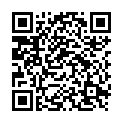|
|
|
| Module code: E521 |
|
4V (4 hours per week) |
|
4 |
| Semester: 5 |
| Mandatory course: yes |
Language of instruction:
German |
Assessment:
Written exam after 6th semester
[updated 12.03.2010]
|
E521 Electrical Engineering, Bachelor, ASPO 01.10.2005
, semester 5, mandatory course
|
60 class hours (= 45 clock hours) over a 15-week period.
The total student study time is 120 hours (equivalent to 4 ECTS credits).
There are therefore 75 hours available for class preparation and follow-up work and exam preparation.
|
Recommended prerequisites (modules):
E104 Fundamentals of Electrical Engineering I
E203 Fundamentals of Electrical Engineering II
E303 Electronics I
E402 Electronics II
[updated 12.03.2010]
|
Recommended as prerequisite for:
E616 Application-Specific Integrated Circuits
[updated 12.03.2010]
|
Module coordinator:
Prof. Dr. Albrecht Kunz |
Lecturer:
Prof. Dr. Albrecht Kunz
[updated 12.03.2010]
|
Learning outcomes:
Students will acquire a broad understanding of the microelectronic production processes currently in use. Armed with this knowledge, students will be able to evaluate the application of specific integrated semiconductor elements and associated logic families.
Students will acquire a detailed understanding of the common logic families. They will be able to distinguish the different logic families and will have learned how to use numerical simulations to assess potential applications.
The skills learned in this course will enable students to select suitable components and SMDs for research and development activities in their chosen area of work.
[updated 12.03.2010]
|
Module content:
1.Technological processes:
1.1.Trends in microelectronics
1.2.Materials
1.3.Wafer production
1.4.Oxidation, lithography, etching techniques, doping techniques
1.5.Deposition techniques
1.6.MOS and bipolar IC technologies
1.7.Examples of integrated circuits
2.Semiconductor logic families:
2.1.Diode transistor logic
2.2.Transistor-transistor logic
2.3.Emitter-coupled logic
2.4.Integrated injection logic
2.5.NMOS technology
[updated 12.03.2010]
|
Teaching methods/Media:
Overhead transparencies, PC, video projector
[updated 12.03.2010]
|
Recommended or required reading:
Baker, R. Jacob: CMOS Circuit Design, Layout, and Simulation, IEEE Press Series on Microelectronic Systems
Uyemura, John P.: CMOS Logic Circuit Design, Kluwer Academic Publishers
DeMassa, Thomas A.: Digital Integrated Circuits, John Wiley & Sons
Hilleringmann, U.: Silizium Halbleitertechnologie, Teubner-Verlag
Wupper, H.: Elektronische Schaltungen, Band 1 und 2, Springer-Verlag
Rein, H.-M.: Integrierte Bipolarschaltungen, Springer-Verlag
Post, H.-U.: Entwurf und Technologie hochintegrierter Schaltungen, Teubner-Verlag
Paul, Reinhold: Eutectic Alloying – Einführung in die Mikroelektronik, Hüthig-Verlag
Hoppe, Bernhard: Mikroelektronik, Band 1 und 2, Vogel-Verlag
[updated 12.03.2010]
|


